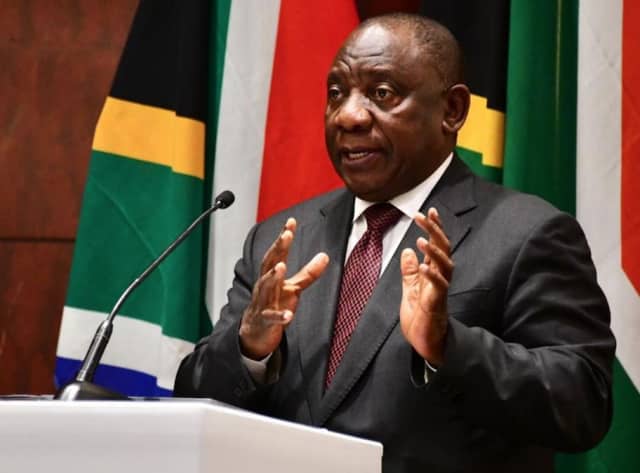Amidst mounting challenges facing South Africa’s mining sector, President Cyril Ramaphosa has underscored the pressing issues gripping the industry. Highlighting the domestic energy crisis and logistical bottlenecks plaguing ports and railways, he emphasised the significant strain on miners’ operational expenses.
Moreover, the pervasive threats of illicit mining, cable theft, and infrastructure vandalism compound the challenges, exacerbating the strain on mining output and returns.
In response to these formidable obstacles, Ramaphosa has rallied a call to action, urging collective effort and determination to navigate through these turbulent times. As the industry braces itself for the road ahead, collaboration emerges as the cornerstone for overcoming these hurdles and ensuring the resilience of South Africa’s vital mining sector.
“We are all acutely aware that we face strong headwinds, and a number of persistent challenges are impeding mining performance,” Ramaphosa told delegates at the African Mining Indaba in Cape Town.
“Globally, commodity price volatility, high energy prices, geopolitical tensions and a global cost of living crisis are playing a significant role in dampening the business operating environment.
“Domestically, the energy crisis and port and rail bottlenecks are putting serious pressure on miners’ operational costs. Illicit mining, cable theft and infrastructure vandalism place a further strain on mining output and returns.,” he said.
“We are committed to work hard and work together to overcome these serious challenges.”
He added that last year South Africa outlined four objectives to develop the sector, improve its global competitiveness and harness the global drive towards sustainable development.
Ramaphosa has outlined a multifaceted approach to address critical challenges facing South Africa’s mining sector.
In his address, he identified three key objectives aimed at bolstering the industry’s resilience and sustainability.
Firstly, the imperative of securing a reliable electricity supply was underscored. The government’s Electricity Action Plan has been instrumental in enhancing the performance of existing generation infrastructure and facilitating the addition of new capacity. The Department of Mineral Resources and Energy has already secured 1,384 MW of new generation capacity, with additional procurement initiatives underway for renewable energy, gas-to-power, and battery storage. However, transmission constraints, especially in the Cape provinces, remain a significant hurdle, necessitating collaborative efforts to unlock additional capacity.
Secondly, accelerating economic reforms to foster a conducive operating environment was highlighted. Reforms such as the removal of the licensing threshold for embedded generation have enabled businesses to thrive. Encouragingly, mining companies like Gold Fields, Anglo American, Seriti, and Exxaro are increasingly leveraging these reforms to power their operations and mitigate operational costs.
Lastly, combating illegal mining and infrastructure damage emerged as a critical priority. Collaborative efforts involving a specialized police unit and the Department of Mineral Resources and Energy have yielded notable successes in curbing criminal activities.
Measures to seal ownerless and derelict mines are underway, alongside initiatives to address copper cable theft and enhance security along rail freight corridors.
Moreover, Ramaphosa emphasised the transformative potential of embracing a low-carbon, climate-resilient economy. Africa’s abundant mineral resources position the continent as a pivotal player in the global energy transition, with mining at its core.
The Mining Indaba serves as a platform to explore opportunities for revitalising mining value chains and enhancing beneficiation, while ensuring a just energy transition that fosters inclusive growth and new livelihoods.
Ramaphosa urged industry collaboration in embedding just transition principles into social labor plans and community initiatives, emphasising the pivotal role of the mining sector in shaping South Africa’s economic future.
As the country navigates this transformative journey, collaboration between government, industry stakeholders, and communities will be paramount in realising a narrative of inclusion, growth, transformation, and innovation in South African mining.
